Why Is My Electric Bill So High with Solar Panels? Here’s How to Reduce It
-
- Last updated:
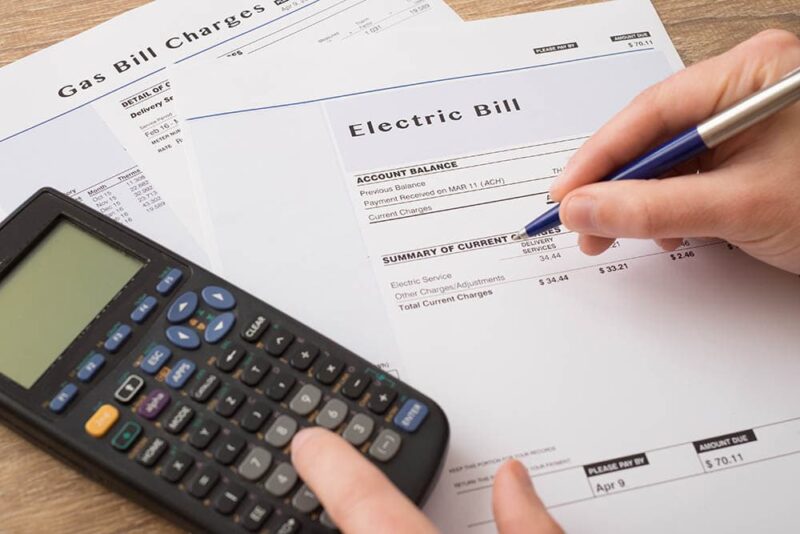
Solar panels are often marketed and sold as a way to reduce or even eliminate pesky electricity bills. Drawing from the infinite energy of the sun is a great way to power a modern home. So, it can be extremely frustrating and even concerning to find that you are still being hit with high power bills after installing brand-new solar panels. How can power bills still be high even with the presence of solar panels? There are a number of reasons that could be causing this issue, but the crux of it is that if you are being charged for power from the grid, your home is not producing enough power from solar alone to cover your needs.
Here is what you can do to try to reduce your electric bills when you have solar panels.

Your House Is Using More Electricity Than the Panels Produce
The most common issue that creates ongoing power bills is the fact that your house is drawing more power than your panels are producing. Solar panels are most effective on the tops of homes in sunny areas with few obstructions. They work best in southern climates where the days are longer than they are up north. It could be that your home is not in an area that is ideally suited for optimal solar power generation.
If you are using more power than you are producing, one way to try to reduce your bill is to reduce your power consumption. Make sure to turn off the lights when you are not home. Raise the temperature on your thermostat to keep the AC from running continuously. Identify and reduce the number of so-called vampire appliances that could be leeching valuable power without you realizing it. Reducing the gap between your power production and your power consumption is a surefire way to reduce that electricity bill.
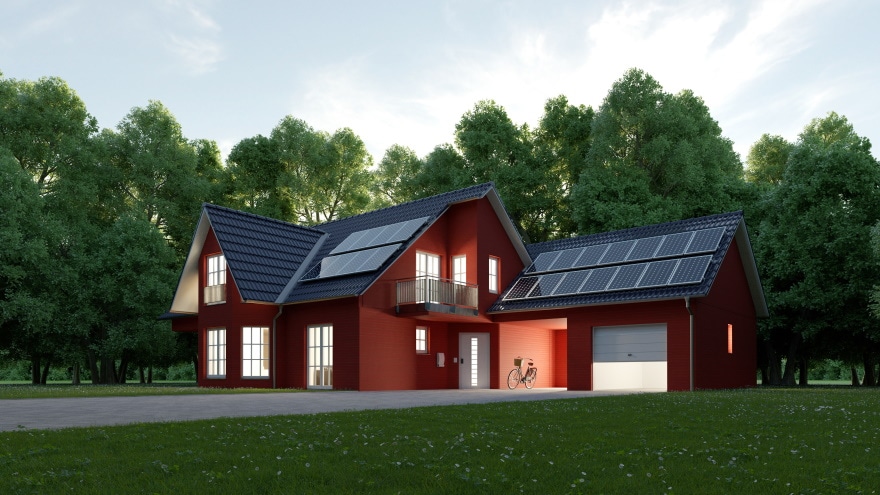
Your Panels Are Not Working Properly
Sometimes solar panels malfunction. They could be dirty, or they could have a bad connection that is not allowing the power to flow freely into your home. Solar panels can become damaged in severe weather. They can also be damaged by animals such as curious birds or squirrels. Tree branches and other debris can fall on your panels and knock them loose.
If you suspect that your panels are not functioning properly or if they are not producing the power that was advertised by the installer, you might want to get them checked.
Have Your Panels Checked
Many solar panels come with a warranty. You can call your provider or your installer and ask if they can come out and conduct an inspection of your panels to check for defects or problems with the panels themselves. They might identify a simple fix that was blocking optimal power output. Many times, these inspections are free as a part of your initial purchase. Check your purchasing agreement and warranty information and talk to your particular solar panel company to see if you can get your panels checked and potentially fixed to help cut down on those electricity bills.
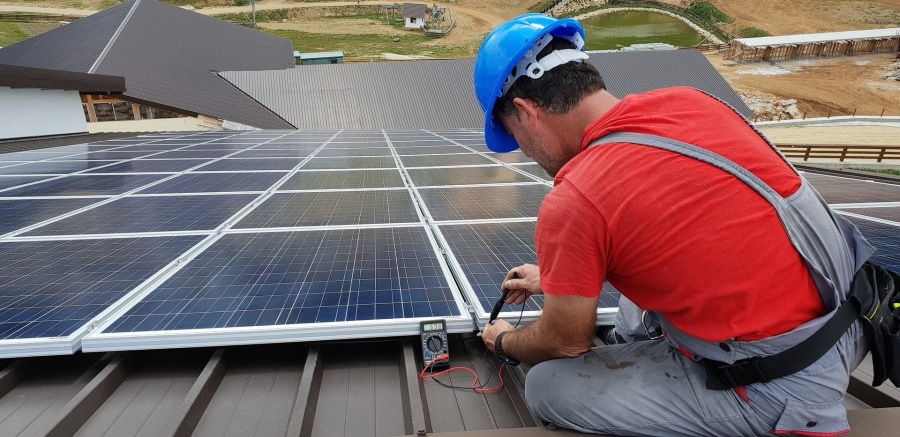
Check Your Meter
Another piece of the puzzle could be your power meter itself. Integrating solar panels with an existing power meter can be tricky. In some cases, you could simply be reading the meter wrong and are miscalculating how much power you are producing and using. That is a common mistake that can lead to common misconceptions.
In some cases, the meter could be faulty. Power meters do go bad from time to time. A bad meter can be giving your power company incorrect readings that are causing them to charge you for power that you are not actually consuming. If you suspect your meter is not working properly, call your power company and request service.
Conduct An Energy Audit
One way to see exactly how much energy you are using, when you are using it, and what is using the most power is to conduct an energy audit. Most power companies nowadays have the ability to run a free audit on your energy usage to give you valuable insight into your power consumption. You might learn that your AC is using the lion’s share of your electricity. You might discover that your washing machine is not energy efficient and is sapping your solar reserves on laundry day. These audits can help you identify problem areas of power usage so you can help lower it effectively.
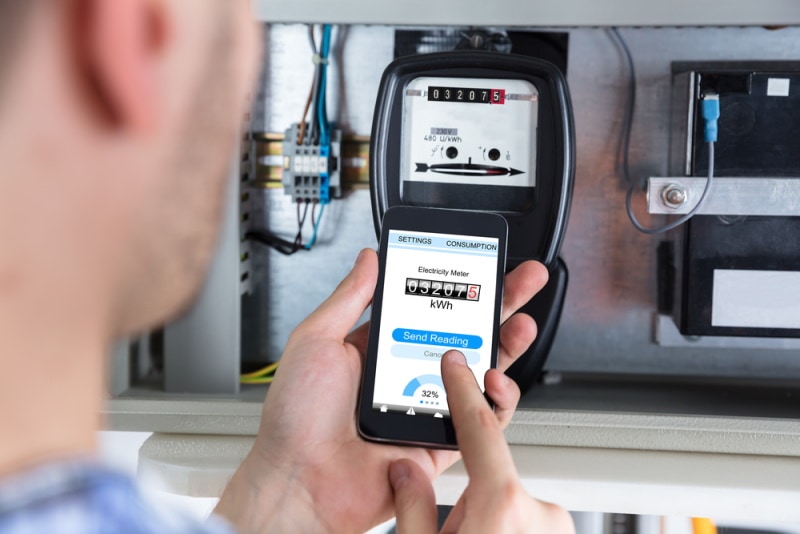
Check for Shade or Obstructions
Another thing that can severely reduce the effectiveness of your solar panel is an obstruction. Solar panels only work when they are exposed to direct sunlight. If your panels are being obstructed during the day, you are losing valuable power-generating hours that will drastically reduce the amount of power your panels produce during any given month.
Check your panels during each part of the day. Go outside and look in the morning. Check them again at noon. Look once more during the evening. Sometimes shadows only appear when the sun is in a certain position in the sky. Look for obstructions from nearby buildings or trees. You might need to remove a tree or trim some branches to reduce the shade coverage of your panels. If your panels are being obstructed by a nearby garage or structure, you might want to consider having them moved to a more optimal location.
The Weather Has Been Uncooperative
One frustrating element that you have no control over is the weather. Sometimes the weather is not as nice as it could be. Cloudy weather and rainy weather can reduce your solar panel efficiency by leaps and bounds. Even partly cloudy days can take a big dent out of your power creation potential. It could be that the weather was not conducive to efficient solar power generation.
Even if you don’t realize it, solar panels are very sensitive to cloudy conditions. It might not seem very cloudy to you, but it could be enough to kill your output. A few cloudy days a month could be all it takes to start causing the electricity bill to rise. Unfortunately, in this situation, there is nothing you can do about it except to try to reduce your power usage on cloudy days to help make up for the decrease in solar generation.
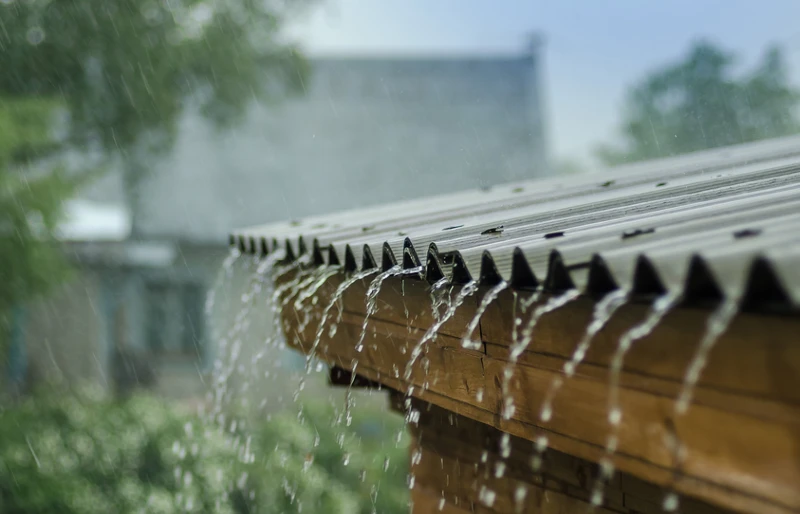

Conclusion
There are a number of reasons why you could still be receiving high power bills after installing solar panels. In most cases, it is because you are using more power than your panels can generate, and this can be because of obstructions, faulty panels, or bad weather. Sometimes your power meter is not interfacing properly with your solar panels. The best thing to do is to try to reduce your power consumption when you can and keep an eye on your panels to make sure they are working properly.
Featured Image Credit: tommaso79, Shutterstock
Contents

